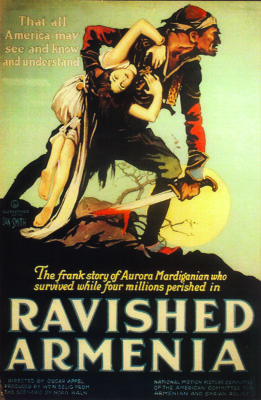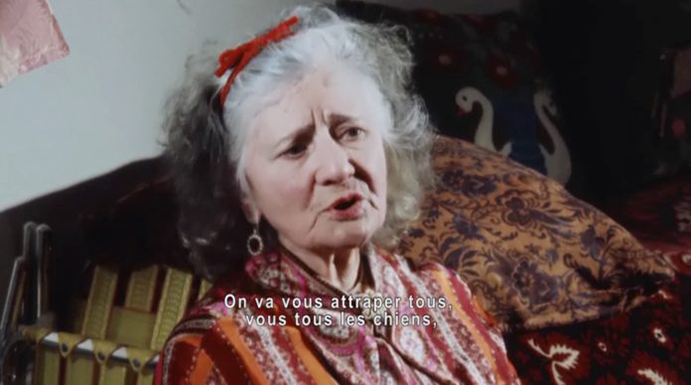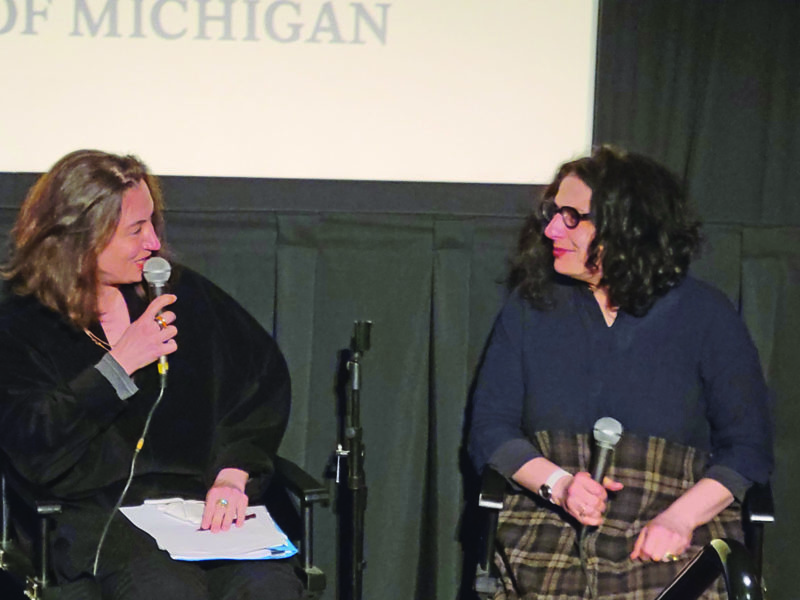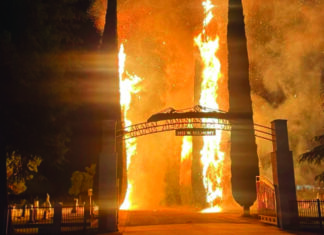ANN ARBOR, Mich. — How can we remember someone so deserving of being remembered, but whom we truly know so little about? And how can we do justice to their story?
These were some of the questions that seemed haunt actress and producer Arsinée Khanjian as she set about to retell the story of Aurora Mardiganian, the Genocide survivor and exploited star of the groundbreaking 1919 silent film, “Auction of Souls.”
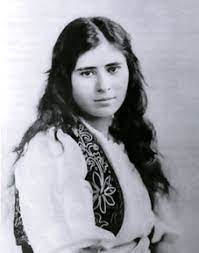
Mardiganian’s story, little known for most of the mid-to-late 20th century, has gained greater awareness in recent years. A genocide survivor from Chemeshgadzak, born Arshalouys Mardigian, she underwent the horrors of the death march, seeing family members killed, being sold into slavery, and subjected to assault, before finding refuge in the Caucasus, meeting historic figures like General Antranig and then reaching New York City.
Since she was an attractive 17-year-old girl, local newspapers and writers seized upon her story as an image of idealized Armenian womanhood destroyed by the “terrible Turk” and published her ghostwritten autobiography, Ravished Armenia, in keeping with the pro-Armenian, anti-Turkish sentiment of the World War I period in the West.
Billed as the “Armenian Joan of Arc,” she was renamed “Aurora Mardiganian” by the publishers. By the end of 1918, she was brought to Los Angeles to star in the silent film version of her autobiography, named “Auction of Souls.” The film, widely shown at the time, is cited as the first in the screen medium to depict any genocide (not just the Armenian). But Mardiganian was emotionally drained from the experience of touring the country for the film’s promotion, and ended up alone in her later years, passing away at the age of 93 after she was forgotten and deserted by the Armenians and the film was lost.

Khanjian is one of many people in recent years inspired by Mardiganian’s story. In 2015 she was commissioned by the Maxim Gorki Theatre in Berlin to write and direct a theatrical performance of “Auction of Souls,” which has been performed in Berlin on successive commemorations of the Armenian Genocide. A recorded film version of the stage presentation was also made. It was this film version which was presented in Ann Arbor, Michigan, on April 7, for the 2022 Dr. Berj H. Haidostian Distinguished Lecture at University of Michigan’s Center for Armenian Studies (CAS).



